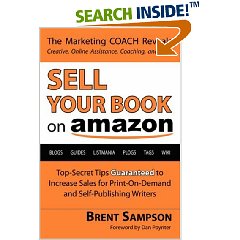
Egotistical of me to put my own name in the headline, I know, but I’m competing with Robert’s Rules of Order and Strunk & White here, so why not? This is my current top ten of the moment–many of which I’ve been doling out to people who I edit or mentor in the craft. Rest assured, I break at least two of these in this very blog post, but then again, I am not submitting this to an editor for money.
10. For informal writing like advice columns, blogging or CD reviews, write like you talk–unless you talk like an idiot.
9. Never use a word you don’t fully understand. Do you KNOW what “avuncular” means? Or the actual meaning of the word “hopefully”? Look it up first.
8. If you don’t know specifically when it is appropriate to use an apostrophe, DON’T. Spell out “it is” and “there is” instead.
7. If you don’t know the difference between “they’re”, “their”, and “there”, quit writing until you do. You’re making an idiot out of yourself.
6. If you refuse to write “modicum” when “a small amount” will do, GOOD FOR YOU.
5. Never use jargon if you don’t understand the full meaning. What is the difference between an aircraft, an airframe or an air platform? Don’t know? Don’t use it.
4. The Pentagon cannot “say” ANYTHING. Neither can Isreal, Boeing, or the Clinton campaign. A spokesperson for any or all of these entities can say whatever he or she likes.
3. There is no such thing as a life-giving shooting spree, so why write about a “deadly” one?
2. Cut the crap. You don’t need to write “Well, let me tell you..” or “I bet there’s something you didn’t know” when “Let me tell you” and “There’s something you didn’t know” will do. Forget all “will be” and “going to” phrases. Just say what’s about to happen.
1. Read your work out loud before you declare it finished. You’ll discover that draft is NOT finished.


